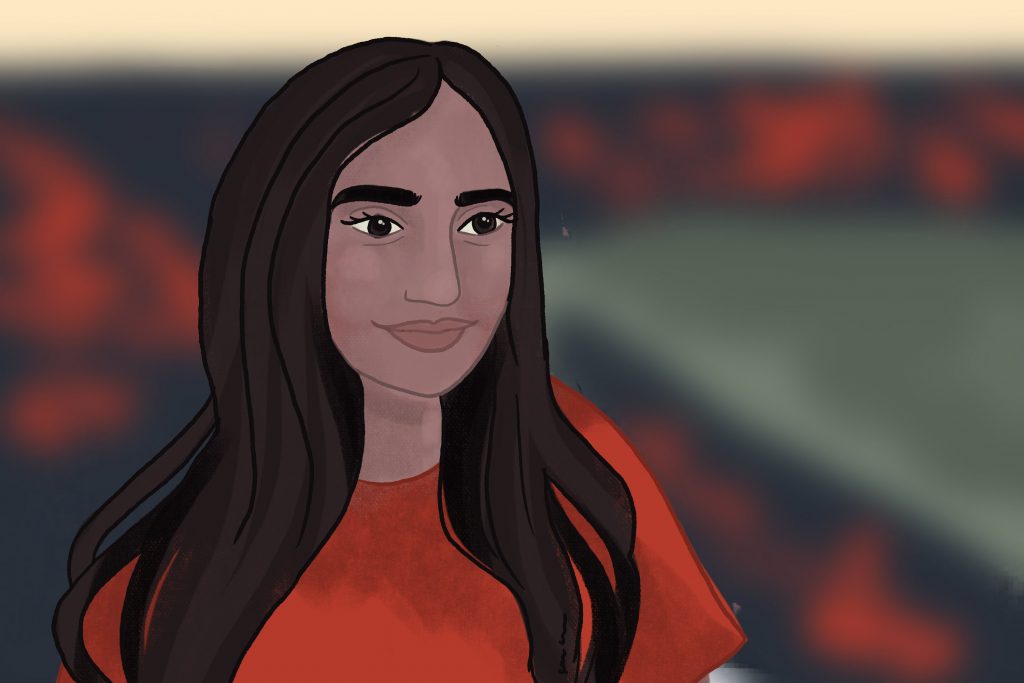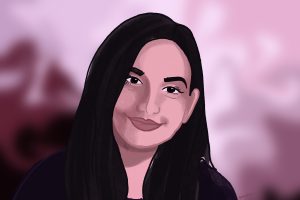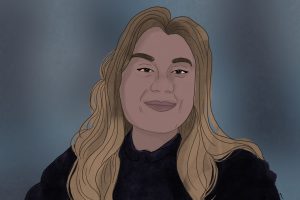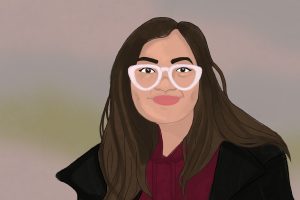The Campus Tour Guide
COVID on Campus: The Campus Tour Guide

I always knew I wanted to be a tour guide, and then the spring of my freshman year, I applied and got an interview for the position. The girl who did my Syracuse tour when I was a high school junior was actually the one who helped me get the job — things came full circle — and I’ve been a tour guide for two years since.
Last spring, back when we were doing tours in-person, I remember a particular college-aged guy was either looking to transfer or go to grad school here. He told me he’d been doing college tours across New York state for the entire week, and that my tour by far was the best he’d gotten. That was something really special, and it kinda just reaffirmed that I’m making a difference by helping people see their futures here at Syracuse.
Unfortunately, because of COVID-19, we haven’t been able to give in-person tours this fall. Instead, the tour guides join prospective student panels over Zoom. It’s a way to interact with them on an introductory level when they can’t be in-person on campus. The students are just trying to find any way they can to interact with future colleges.
Every couple weeks, up to 10 tour guides join the hour-long panel and answer questions about Syracuse University academics, sports, social life, Greek life, food on- and off-campus, and dorm life.
We talk about whatever comes up, and a lot of those questions are the same as the ones I got for in-person tours. We answer why we decided to come to Syracuse, what we like and dislike about campus, and the high school juniors and seniors — or their parents — can type questions in the chat and re-watch the recording later. Different students join each Zoom, and it’s not the same group of tour guides either, so it makes for interesting conversations.
Now, though, they have different questions. They want to know how SU is keeping students safe, what testing is like, and what the on-campus atmosphere feels like during the pandemic.
As a tour guide, we’re told not to lie about anything. Last fall during the #NotAgainSU protests, we were honest with prospective students, and COVID-19 kinda goes along with that. Everybody knows that going to college and being here on campus is a risk, but I think the university is doing its best. We just emphasize that here at Syracuse, the response might not be perfect, but we’re taking it seriously.
In addition to the Zoom panels, we’ve had some tour guides make videos where they stand in front of a building and talk about it, just like we’d do for an in-person tour. I haven’t been in any of those, but a lot of my tour guide friends have. Students can just watch them through social media, and we’ve found that’s the best route to go.
My sister is a senior in high school, so she’s kinda going through the same dilemma where a lot of colleges aren’t having tours. It’s tough because I think that you can read as much information as you want online, you can do as many online virtual tours, but until you actually step foot on campus, you don’t really know if that’s your future home. The first time I visited Syracuse was spring of my junior year. From there, I just kinda knew.
That element — knowing if it’s the right fit — isn’t really present on the Zoom panels, just because you don’t have those one-on-one interactions with students.
Still, though, for the students who do come to the Zoom calls, it’s a really great opportunity. I don’t know if I’d be doing that as a senior and I think it’s really smart that they’re trying to get as much information as they can.
My favorite part about the end of high school was traveling to different colleges and learning about what they were like. It’s great seeing these students on Zoom, but I feel like a little bit is lost. I’m really just hoping on-campus tours start up again so these students can come visit in the spring.
This as-told-to interview is part of COVID on Campus, a series created by students in the Reporting classes at the Newhouse School in Fall 2020. COVID on Campus documents the experiences of students, staff, and faculty living through this extraordinary time.











